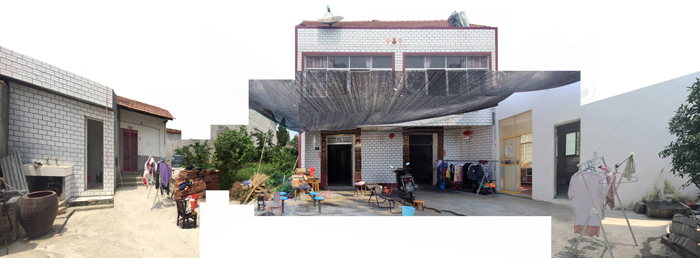LATE Conversations #2
Landscape, Architecture and Tourism Explorations
When: Monday 12 March 2018, 6-8pm
Where: Robin Evans Room [M416], Faculty of Architecture and Built Environment, University of Westminster, 35 Marylebone Road, London NW1 5LS
RURAL[scapes]
Never mind the countryside
[Ben Stringer]
In the shadows of urbanisation the countryside is changing. Familiar tropes of tradition, nostalgia and certitude seem strangely out of place in a highly contested setting of increasing uncertainty and instability. How can artists and architects engage with rural anxiety and complexity?
The black field: elements and strata at Manston airport
[Corinna Dean]
Through my research vehicle The Archive for Rural Contemporary Architecture [ARCA] I recorded the now decommissioned Kent International Airport, specifically the 2749m runway built during the Second World War; too costly to dig up, sitting on a substrate of a depth of 3 to 5 metres. As proposals for its future are debated, the question arises as to how the nature of the materiality of the site and a consideration for its place in a geological time span, might influence a proposal for its future use?
On the rural and its connections
[Giulio Verdini]
Harmonious territorial development and urban-rural linkages have attracted increased policy attention in recent years in the attempt to overcome the predominant discourse of the urban-rural divide. Urban-rural linkages refer to complementary and synergetic functions and flows of people, natural resources, capital, goods, employment, ecosystem services, information and technology between rural, peri-urban and urban areas. Therefore, territorial or urban-rural partnerships are increasingly regarded as a desirable policy action respectful of the particular identities of different territorial components. Cases of rural towns in Asia, Latin America and Europe, and their sustainable regional or international connections, will be presented.
Experiencing the rural
[Nancy Stevenson]
This presentation will consider embodied and emotional journeys through rural areas, drawn from research into walkers’ experiences of the South Downs Way. By examining the bodily sensations and emotional states experienced by walkers, I identify feelings that are innate and those that are mediated by the rural environment. An urban-rural dichotomy is evident in the literature and is supported by the notion that in the countryside, the walking body is free from the restrictions, regulations and distractions of city. However, in the action-space of the walk a mixture of social interaction and opportunity for introspection disconnects walkers from their immediate environment and connects them to other places and other times.
Moderation
[Helen Farrell]
Format
18:00 – 19:00 introduction of session and speakers + interventions [10m each speaker]
19:00 – 19:30 extended conversation between guests and audience
19:30 – 20:00 drinks
People
Ben Stringer teaches design studio and history and theory at the University of Westminster, London. He was one of the principal organisers of the Re-Imagining Rurality conference and exhibition held at Westminster in 2015. He recently guest edited a ‘Villages and Globalisation’ issue of the journal Architecture and Culture. He also edited the book Rurality Re-imagined, to be published later this year. He is also a trustee of Oxford City Farm.
Corinna Dean is a Lecturer in Architecture at the University of Westminster. She is an urbanist and curator who looks at a semiotic reading of the urbanscape, and is driven by an interest in how the urban is communicated, experienced and lived out across cultures, most recently explored on a field study trip of Douala, Cameroon with a French agency and to Kochi, India, to collaborate with the Kochi-Muziri Art Biennale team. She holds a PhD from the LSE Cities Programme which was a collaborative doctoral award with Tate Modern and explored narratives of cultural regeneration. Most recently she launched ARCA, the Archive for Rural Contemporary Architecture, which is an open source archive to encourage participation from the bottom up, as well as re-engaging cold war structures and other architectural typologies in a rural context. She is engaged in devising cultural projects to bring these sites into the public consciousness through temporary activities such as workshops and creative interpretations.
Giulio Verdini is a Senior Lecturer in Planning at the University of Westminster and the Course Leader of BA Designing Cities. He has published on urban-rural linkages, urban governance, local development and community involvement, particularly in the context of China. He wrote ‘Urban China’s Rural Fringe’ (Routledge, 2016) and he was one of the lead contributors of the UNESCO Global Report ‘Culture for Sustainable Urban Development’ (2016). He is currently the editor of the newly established Routledge Book Series ‘Planning, Heritage and Sustainability.
Nancy Stevenson is the International Director for fABE. She originally qualified and worked as an urban planner and now teaches on the tourism and events programmes. Her research reflects an interest in small scale and embodied activities, experiences and interactions within the built and natural environment.
Helen Farrell leads the undergraduate tourism courses and is a senior lecturer in tourism. Her research interests are in rural recreation, landscape and sustainability. She helps edit the journal ‘Tourism Planning and Development’ and has publications on topics such as the embodied experiences of walking, the benefits of green exercise and rural tourism entrepreneurship. Current research with Nancy Stevenson on the South Downs Way has one article in press with another underway at present.
LATE Conversations is a series of events exploring the interactions between Landscape, Architecture and Tourism. It aims to engage an interdisciplinary conversation across the departments of the Faculty of Architecture and the Built Environment and foster dialogue between academics/professionals and students from different disciplines engaged with the Landscape.
Organisation: Westminster Architecture Society and Westminster Tourism Society.
Coordination: Duarte Santo and Helen Farrell
LATE conversations is a joint event of the Department of Architecture and the Department of Planning and Transport. Faculty of Architecture and the Built Environment, University of Westminster.
#LATEconversations
#architectureandbuiltenvironment
#universityofwestminster
#ruralscapes
Next in series: LATE conversation #3 GLOBAL[scapes] 26.03.2018











![LATE Conversations #2, RURAL[scapes], Monday 12th March, 18:00-20:00, Robin Evans Room M416](http://www.openstudiowestminster.org/wp-content/uploads/2018/03/RURALscapes.jpg)